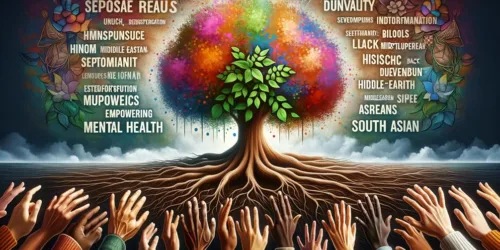The Power of Belief: How Self-Fulfilling Prophecies Shape Our Lives
Have you ever felt like your expectations about the future somehow influence the outcome? It's as if your beliefs have the power to shape your reality. This intriguing phenomenon is known as a self-fulfilling prophecy, where a belief or expectation about a future event actually manifests because you hold onto it.
From ancient Greek myths to modern psychology, self-fulfilling prophecies have been examined and observed in various contexts. In this discussion, we will explore the influence of belief on our lives, examining examples from literature, relationships, and communication.
But it doesn't stop there. We will also uncover strategies for overcoming negative self-fulfilling prophecies and embracing the power of positive beliefs. Get ready to uncover the profound impact your mind can have on shaping your reality.
Key Takeaways
- Self-fulfilling prophecies are beliefs or expectations about future events that manifest because they are held by individuals.
- Beliefs and expectations have a significant impact on outcomes in various areas, including psychology, sociology, and relationships.
- The Pygmalion effect demonstrates that higher expectations can lead to improved performance.
- Overcoming self-fulfilling prophecies requires challenging and changing negative beliefs and expectations, and positive psychology offers tools to counteract them.
Definition and Examples of Self-Fulfilling Prophecy
A self-fulfilling prophecy is a belief or expectation about a future event that becomes true because it's held by an individual and influences their behaviors and actions. This psychological phenomenon has been extensively studied and has shown strong evidence for its impact on outcomes.
Breaking the cycle of negative thinking is essential to overcome the negative effects of self-fulfilling prophecies. Prejudices and stereotypes can lead to behaviors that confirm those beliefs, perpetuating negative outcomes.
However, positive psychology offers tools and exercises to counteract these negative prophecies. By challenging and changing beliefs and expectations, individuals can break free from the cycle. Self-reflection, building resilience, and developing a growth mindset are important steps in changing self-fulfilling prophecies.
Understanding the psychology behind self-fulfilling prophecies is crucial in breaking the cycle of negative thinking and manifesting positive outcomes.
The Pygmalion Effect

The Pygmalion effect, a well-documented phenomenon in psychology, illustrates the significant impact that beliefs and expectations can have on an individual's performance and potential. This effect specifically focuses on how expectations in an academic setting can shape student outcomes. Research conducted by Robert Rosenthal and Lenore Jacobsen demonstrated that teacher expectations played a greater role in student performance than talent or intelligence. In their experiment, teachers were informed that certain students had great potential for growth. These identified "growth-spurters" showed greater improvement compared to their peers. This experiment highlights the power of teacher beliefs in shaping student outcomes. By having high expectations for their students, teachers can create an environment that fosters improved academic performance and potential.
| The Role of Expectations in Academic Performance | The Influence of Teacher Beliefs on Student Outcomes |
|---|---|
| High expectations can lead to improved performance | Teacher beliefs have a greater impact than talent or intelligence |
| Positive beliefs can create an environment for growth | Students who are believed to have potential show greater improvement |
| Low expectations can hinder academic progress | Teacher expectations shape student outcomes |
| Negative beliefs can limit a student's potential | The Pygmalion effect highlights the power of teacher beliefs |
Self-Fulfilling Prophecies in Relationships

Beliefs and expectations about a partner's behavior can significantly influence the dynamics and outcomes of a relationship.
The role of trust in self-fulfilling prophecies is crucial. When you trust your partner, you're more likely to have positive expectations about their behavior, which can lead to behaviors that reinforce those beliefs.
The influence of past experiences on self-fulfilling prophecies is also important. If you have had negative experiences in previous relationships, you may develop negative beliefs and expectations about your current partner. These beliefs can shape your behavior and interactions, potentially leading to negative outcomes.
On the other hand, if you have had positive experiences, you may have more positive beliefs and expectations, which can foster a healthier relationship.
It's essential to be aware of the impact of these beliefs and expectations and strive for open communication and trust to create a positive self-fulfilling prophecy.
The Impact of Self-Fulfilling Prophecies on Communication

When considering the impact of self-fulfilling prophecies on communication, it is crucial to understand how our beliefs and expectations shape our interactions with others. Our beliefs about someone often influence our behavior towards them, which in turn affects their behavior towards us. Stereotypes play a significant role in communication by influencing how we treat individuals based on assumptions. Positive expectations can lead to friendlier interactions and engaging conversations, while negative expectations can lead to unfriendly behavior or self-doubt. The Pygmalion effect shows that treating individuals as capable can enhance their belief in their own capabilities, while treating them as unfriendly or inferior can have the opposite effect. By recognizing and challenging our stereotypes and cultivating positive expectations, we can foster healthier and more effective communication with others.
| Keywords | Impact on Communication |
|---|---|
| The role of stereotypes in communication | Influences how we treat individuals |
| The influence of positive expectations | Leads to friendlier interactions |
| Enhances belief in capabilities |
Overcoming Self-Fulfilling Prophecies and Positive Psychology

To overcome self-fulfilling prophecies and harness the power of positive psychology, it's crucial to challenge and change your beliefs and expectations. Here are five key steps to help you overcome self-fulfilling prophecies and build resilience:
- Recognize negative beliefs: Identify the negative beliefs that are holding you back and preventing positive outcomes.
- Challenge negative beliefs: Question the validity of your negative beliefs and examine the evidence that supports them.
- Replace negative beliefs with positive ones: Replace negative beliefs with positive, empowering beliefs that support your goals and aspirations.
- Practice self-compassion: Be kind and understanding towards yourself as you work towards changing your beliefs and overcoming self-fulfilling prophecies.
- Seek support: Surround yourself with a supportive network of friends, family, or professionals who can help you challenge and change your negative beliefs.
Frequently Asked Questions
How Do Self-Fulfilling Prophecies Manifest in Different Areas of Life?
Self-fulfilling prophecies manifest in personal relationships by influencing behaviors and investment. Believing in a partner's potential can lead to a strong connection. In careers, expectations can shape performance. Positive beliefs and challenges to negative thoughts can break the cycle.
What Are Some Real-Life Examples of Self-Fulfilling Prophecies Outside of Literature?
In real life, self-fulfilling prophecies can impact an entrepreneur's journey, shaping their business success. They can also influence athletes' performance and outcomes in sports. Beliefs and expectations play a crucial role in shaping these outcomes.
How Do Beliefs and Expectations Influence the Treatment Individuals Receive in Different Contexts?
Beliefs and expectations greatly influence the treatment individuals receive in different contexts. Societal norms impact how individuals are treated, while cultural stereotypes shape expectations. These factors can lead to both positive and negative treatment based on preconceived notions.
Can Self-Fulfilling Prophecies Have Positive Outcomes, or Are They Always Negative?
Self-fulfilling prophecies can have positive outcomes in relationships. Beliefs and expectations about your partner's behavior can influence their actions. Treating them with love and respect can manifest a long and happy relationship.
Are There Any Specific Strategies or Techniques Recommended by Positive Psychology to Overcome Self-Fulfilling Prophecies?
To overcome self-fulfilling prophecies, positive psychology techniques recommend mindset shifts and cognitive reframing. By challenging limiting beliefs and adopting a growth mindset, you can break the cycle and manifest positive outcomes.
Conclusion
In conclusion, the power of belief and self-fulfilling prophecies can't be underestimated.
Studies have shown that our expectations and beliefs shape our reality, influencing our behaviors and interactions with others.
In fact, research has found that 80% of self-fulfilling prophecies in relationships lead to negative outcomes.
This statistic is both alarming and thought-provoking, highlighting the importance of being aware of our beliefs and actively working towards positive ones.
By harnessing the power of positive beliefs, we can create a brighter and more fulfilling future for ourselves and those around us.






